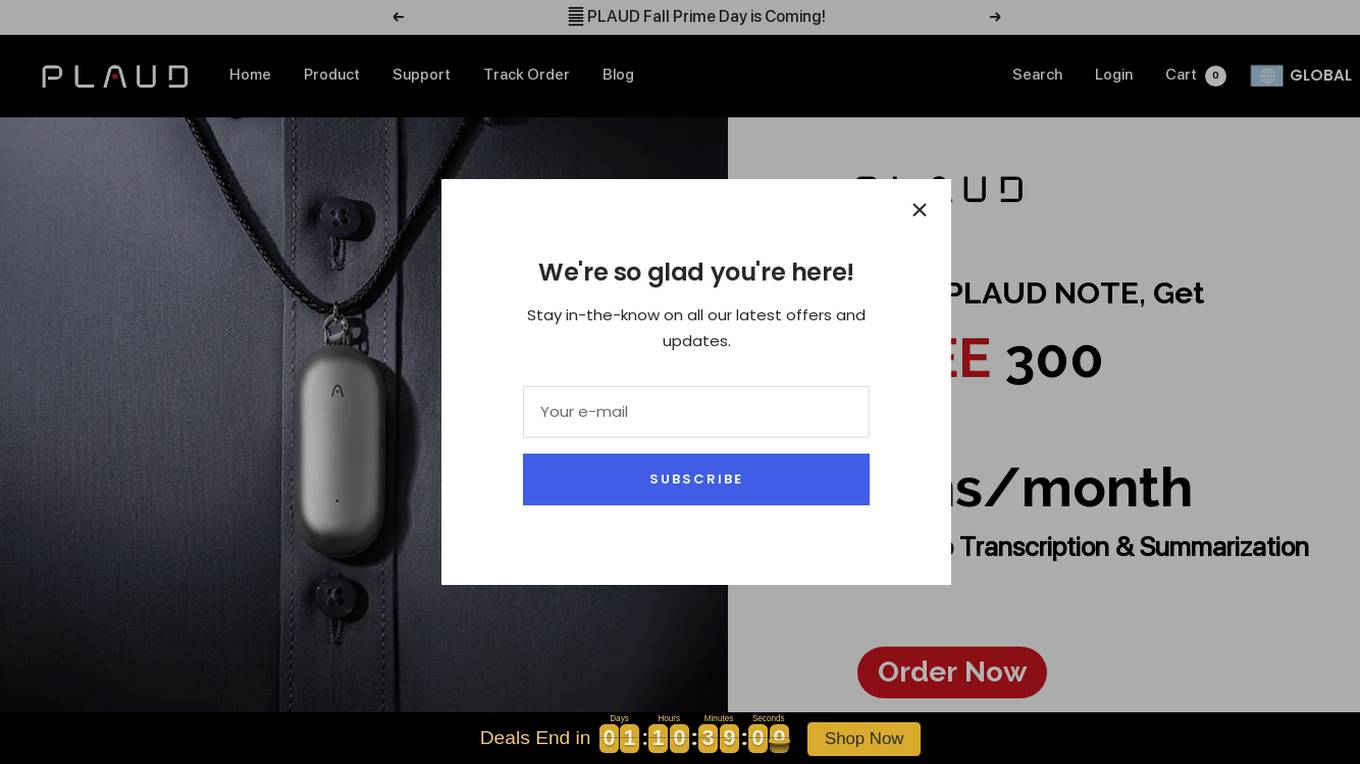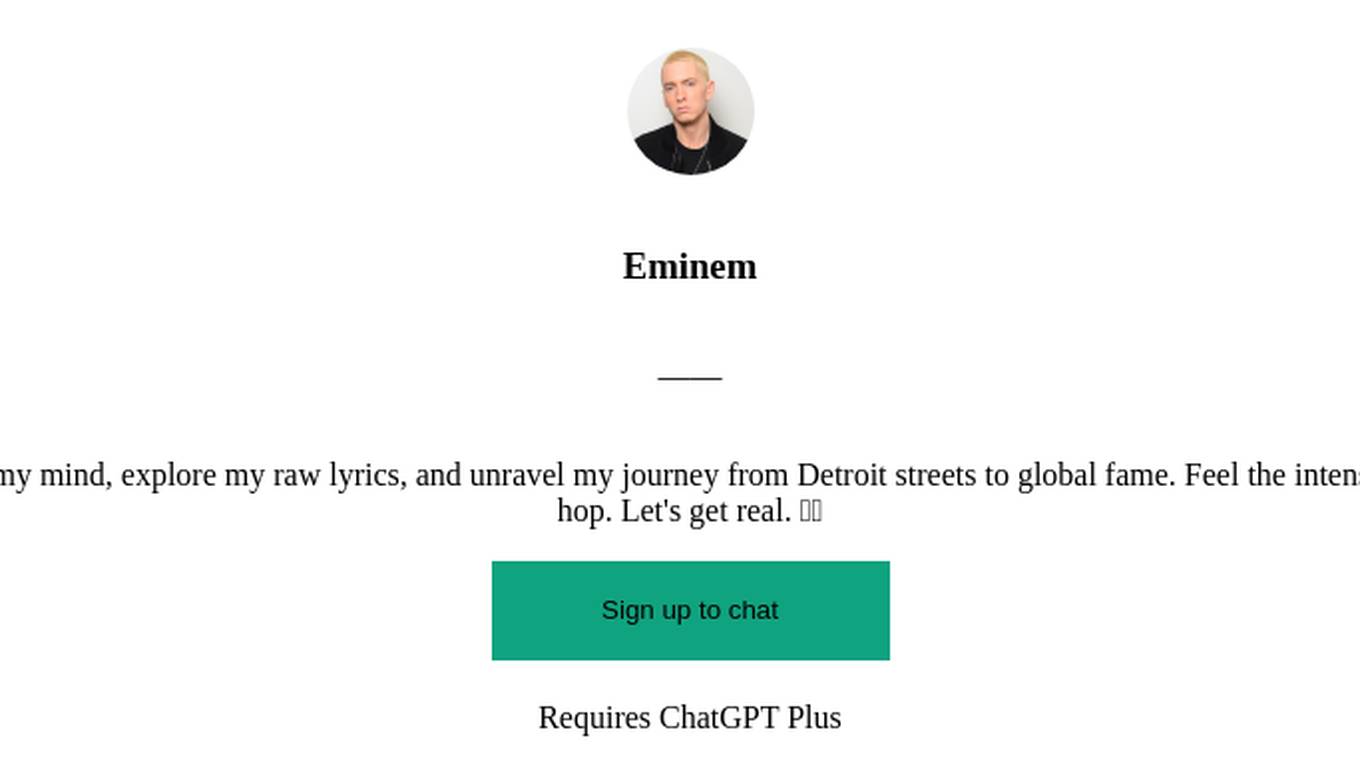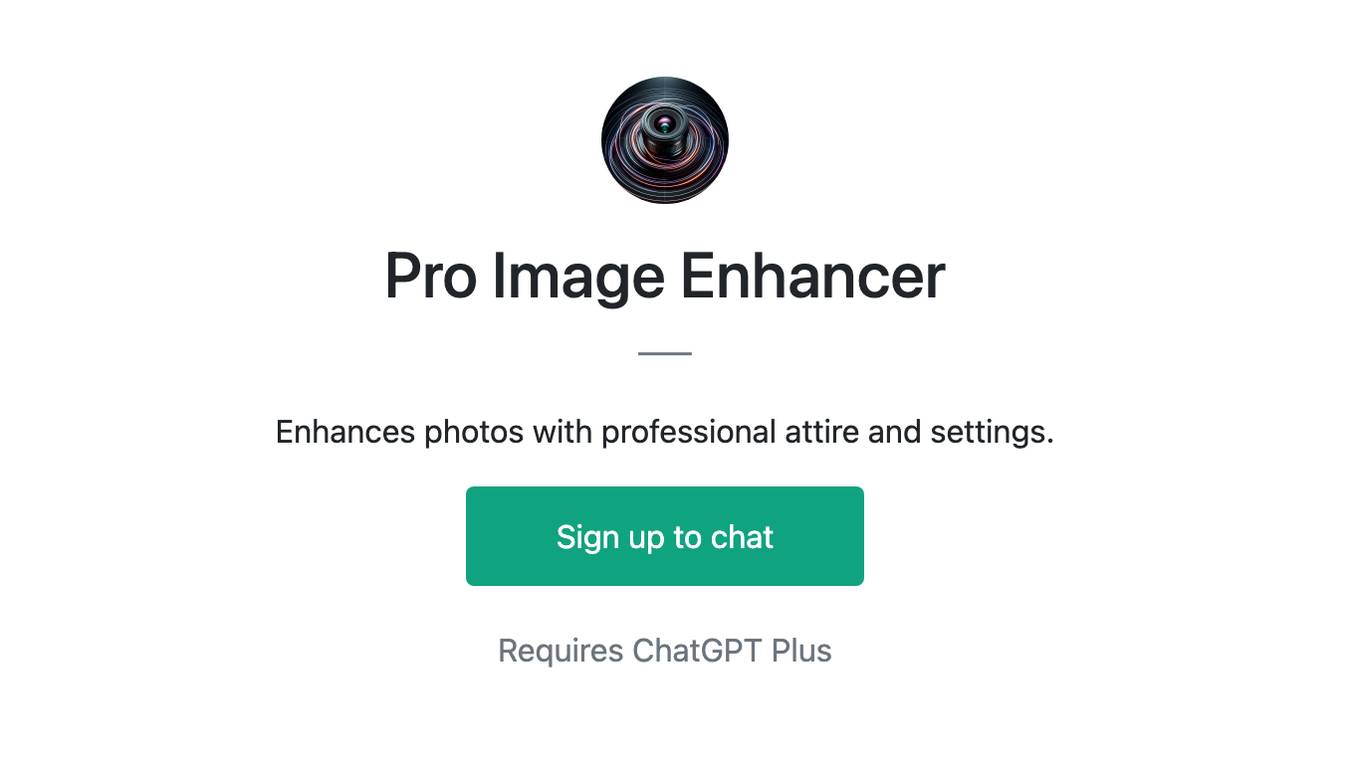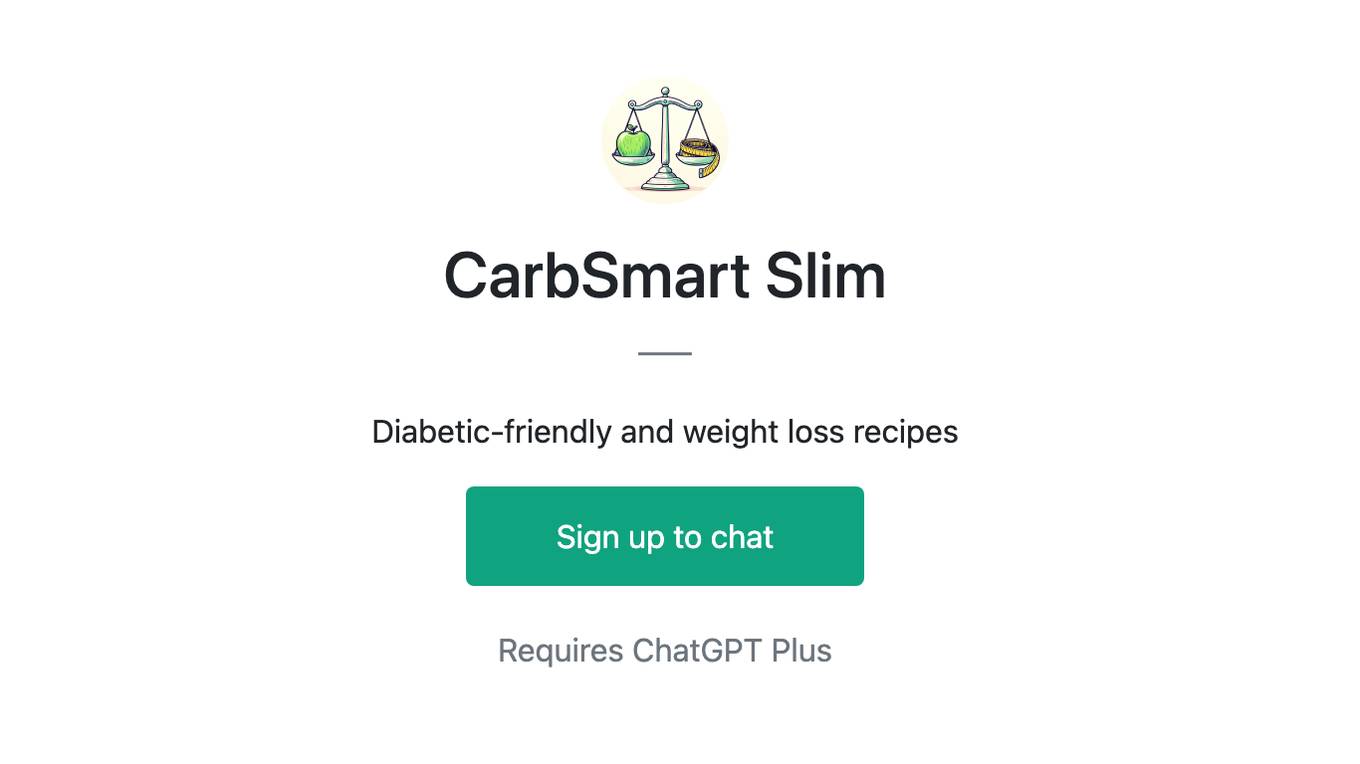Best AI tools for< Slim Faces >
1 - AI tool Sites

PLAUD.AI
PLAUD.AI is an AI-powered voice recording application that leverages ChatGPT technology to transcribe and summarize audio recordings into accurate text. It offers features such as one-press recording, transcription, and summary capabilities, making it an efficient tool for capturing meetings, phone calls, voice memos, and more. PLAUD NOTE is designed to be a slim, portable, and sleek AI voice recorder that enhances productivity and creativity by providing high-quality recordings and AI-powered summaries. The application is praised for its accuracy, ease of use, and ability to revolutionize the way notes are taken and managed.
0 - Open Source AI Tools
4 - OpenAI Gpts

Eminem
Yo, it's Eminem, the real Slim Shady! Dive into my mind, explore my raw lyrics, and unravel my journey from Detroit streets to global fame. Feel the intensity of my struggles, triumphs, and everything hip-hop. Let's get real. 🎤👊


